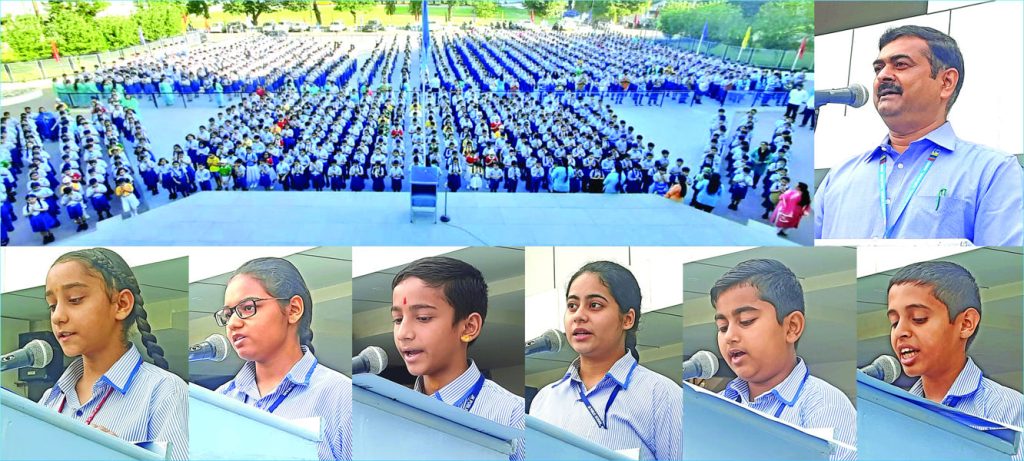Futuristic Education Shapes Students into Well-Groomed Individuals
Shaping the Future: Education for Well-Groomed Individuals
Education is the cornerstone of society, isn’t it? It shapes who we are, what we know, and how we engage with the world. But hold on a moment—what if I told you that the way we educate our future generations is undergoing a massive transformation? Futuristic education isn’t just about learning math equations or memorizing history dates; it’s about grooming well-rounded individuals, equipped with essential life skills, a solid character, and the ability to thrive in an ever-changing world. So grab your favorite cup of coffee, and let’s dive into how futuristic education is molding students into sophisticated, well-groomed individuals.
Why We Need a Shift in Education
Think back to your school days. How much did you actually learn that you use in your everyday life now? For many of us, traditional education fell short in preparing us for the practicalities of adult life. Sure, we learned about Pythagorean theorem, but how many of us understand how to manage our finances or communicate effectively in a professional setting?
The Changing Landscape
As we swirl deeper into the 21st century, the landscape of education is changing. Technology is the name of the game. Online classes, interactive learning environments, and innovative teaching methods are becoming the norm. It’s not just about sitting in a classroom anymore; it’s about creating engaging spaces where students can explore their interests and develop their skills.
Key Features of Futuristic Education
Alright, let’s break down the standout features of this kind of education. It all revolves around a few core components—let’s paint a picture, shall we?
1. Holistic Development
Have you ever seen a plant grow? It needs soil, water, and sunlight to flourish. Similarly, students need a nurturing environment that meets their intellectual, emotional, and social needs. Holistic development means focusing on:
- Emotional Intelligence: Students learn how to manage their emotions and understand others.
- Social Skills: Group projects and collaborations encourage teamwork and communication.
- Critical Thinking: Instead of rote memorization, students are challenged to think critically and solve problems.
2. Personalized Learning
Just as no two fingerprints are alike, every student has unique learning needs and styles. Futuristic education recognizes this individuality by offering personalized learning experiences. Picture a classroom where each student follows a tailored learning path that suits their pace and interests. This can include:
- Adaptive technology and online platforms that provide customized resources.
- One-on-one mentoring to help tackle specific challenges.
- Opportunities to explore personal passions alongside standard curriculum.
3. Character Building
Ever met someone whose presence lights up a room? That’s what character is all about. In futuristic education, character building is a significant focus. Students are educated not just to excel academically but to grow into empathetic, responsible citizens. Here’s how this is achieved:
- Community Service: Engaging students in volunteer work instills a sense of civic responsibility.
- Moral Education: Discussions around ethics and values help students navigate real-world dilemmas.
- Leadership Opportunities: Encouraging students to take on leadership roles fosters confidence and assertiveness.
4. Leveraging Technology
Remember the days when textbooks were our best friends? Fast forward to today, and technology is revolutionizing the way students learn. Futuristic education embraces various tech tools that enhance the learning experience, including:
- Virtual and Augmented Reality: Imagine analyzing historical events or exploring the human body in 3D!
- Collaborative Platforms: Students can work together online, no matter where they are—breaking geographical barriers.
- Artificial Intelligence (AI): Smart algorithms can help tailor lessons to individual student needs.
5. Lifelong Learning
The world is changing at lightning speed, and education shouldn’t stop after graduation. The concept of lifelong learning becomes ingrained in students through:
- Encouraging Curiosity: Students should feel empowered to explore subjects beyond the classroom.
- Professional Development: Schools often provide resources for students to gain skills that keep them competitive in the workforce.
- Adaptability Training: Teaching students how to pivot and adapt to new situations prepares them for an unpredictable world.
The Role of Educators in Futuristic Education
So, where do teachers fit in this new education paradigm? It’s a central role, actually. Picture a mentor and guide rather than just a lecturing authority. Educators must adapt to these new methodologies and become facilitators of learning. This means:
- Training for Teachers: Professional development programs cater to teaching new technologies and strategies.
- Creating an Interactive Classroom: Teachers are encouraged to foster environments where students feel comfortable sharing ideas and engaging in discussions.
- Continuous Collaboration: Educators collaborate with each other and with parents to ensure a supportive network for students.
Challenges to Overcome
Of course, like any good superhero story, there are challenges to face. Here are a few common hurdles in implementing this futuristic approach to education:
- Budget Constraints: Not every school has access to the latest technology or training resources.
- Resistance to Change: Some educators may be set in their traditional ways of teaching and reluctant to adopt new methods.
- Standardized Testing: The focus on test scores can limit how much flexibility schools have in curricula.
Conclusion
Futuristic education is not simply a buzzword; it’s a vital evolution in the way we prepare our youth for the future. By focusing on holistic development, personalized learning, character building, and the effective use of technology, we can mold students into critical thinkers, effective communicators, and compassionate individuals. The classroom of tomorrow isn’t just about being book-smart; it’s about nurturing the whole person. So, let’s champion this change together!
FAQs
Q1: What is the primary goal of futuristic education?
A1: The primary goal is to create well-rounded individuals who are prepared for the complexities of modern life, both personally and professionally.
Q2: How does technology enhance the learning experience?
A2: Technology enriches learning through interactive tools like VR, AI, and online platforms that tailor educational experiences to individual student needs.
Q3: What role do teachers play in futuristic education?
A3: Teachers act as facilitators and mentors, guiding students’ learning journeys and encouraging critical thinking and collaboration.
Q4: Is character education important?
A4: Absolutely! Character education helps students develop empathy, ethics, and leadership skills, which are crucial for their future roles in society.
Q5: What challenges do schools face in implementing futuristic education?
A5: Schools often grapple with budget constraints, resistance to change among educators, and the pressure of standardized testing.
This article highlights the importance of adapting our educational systems to prepare future generations for the challenges ahead. Let’s work together for a brighter tomorrow!







